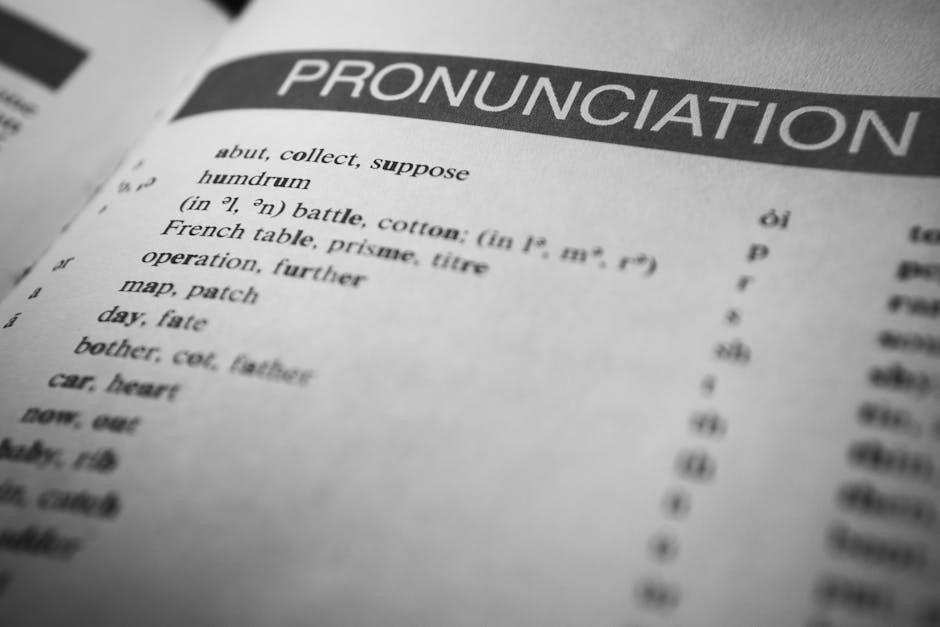Key Foundational Documents
These documents form the cornerstone of American governance‚ including the Declaration of Independence‚ the U.S. Constitution‚ and the Articles of Confederation‚ shaping the nation’s political framework and ideals.
1.1 Declaration of Independence (1776)
The Declaration of Independence‚ authored primarily by Thomas Jefferson in 1776‚ formally declared the 13 colonies’ independence from Great Britain. It established the foundational ideals of American democracy‚ including natural rights such as “Life‚ Liberty‚ and the pursuit of Happiness.” The document asserted the principle of consent of the governed and the right to alter or abolish government if it becomes tyrannical. It also outlined a list of grievances against King George III‚ justifying the colonies’ separation. This document profoundly shaped American political thought and remains a cornerstone of U.S. governance and ideology.
1.2 U.S. Constitution
The U.S. Constitution‚ ratified in 1788 and effective in 1789‚ is the supreme law of the land. It established the framework of the federal government‚ dividing power among the legislative‚ executive‚ and judicial branches. The Preamble outlines its purpose: to form a more perfect union‚ establish justice‚ ensure domestic tranquility‚ provide for the common defense‚ promote the general welfare‚ and secure liberty. The Constitution consists of a preamble‚ seven articles‚ and the Bill of Rights. It embodies principles like federalism‚ checks and balances‚ and individual rights‚ while also providing a process for amendments to adapt to changing times.
1.3 The Articles of Confederation
The Articles of Confederation‚ adopted in 1781‚ served as the first formal government document of the United States. It established a weak central government with only a unicameral legislature‚ leaving most power to the states. Key weaknesses included no executive or judicial branches‚ inability to levy taxes‚ and difficulty in amending the document. It failed to address issues like interstate disputes or economic instability‚ leading to its replacement by the U.S. Constitution in 1789. Despite its flaws‚ it laid the groundwork for federalism and national unity.

Democratic Ideals
Democratic ideals emphasize fairness‚ representation‚ and the protection of individual rights‚ forming the moral and philosophical foundation of democratic governance and citizen participation in government.
2.1 Natural Rights
Natural rights are inherent‚ unalienable rights believed to be granted by nature or a higher power‚ existing regardless of government. These rights‚ such as life‚ liberty‚ and property‚ are considered fundamental and universal. The concept‚ heavily influenced by Enlightenment thinkers like John Locke‚ asserts that individuals are born with these rights‚ and it is the government’s duty to protect them. Natural rights are central to democratic theory‚ as they justify limited government and individual freedoms‚ shaping foundational documents like the Declaration of Independence.
2.2 Popular Sovereignty
Popular sovereignty is the principle that the authority of government derives from the people. It emphasizes that the people are the ultimate source of political power and that government exists to serve their will. This concept is central to democratic governance‚ as it ensures accountability and legitimacy. In the U.S.‚ popular sovereignty is reflected in practices like elections‚ referendums‚ and representative government. Key documents‚ such as the Declaration of Independence and the U.S. Constitution‚ affirm this idea by asserting that power comes from the consent of the governed.
2.3 Republicanism
Republicanism emphasizes representative government rather than direct democracy. It relies on elected officials to make decisions on behalf of the people‚ ensuring stability and deliberation. This system contrasts with pure democracy‚ where decisions are made by majority vote. Republicanism values checks and balances to prevent abuses of power and protect minority rights. Enlightenment thinkers like Montesquieu influenced this concept‚ advocating for separation of powers. The Founding Fathers embraced republicanism‚ believing it better suited for large‚ diverse societies. It promotes virtuous leadership and accountability to the public interest.
2.4 Social Contract
Social Contract theory posits that individuals voluntarily surrender some rights to a government in exchange for protection‚ stability‚ and societal order. Thinkers like Hobbes‚ Locke‚ and Rousseau explored this concept‚ with Locke arguing that governments derive authority from the consent of the governed; If a government fails to uphold its obligations‚ citizens retain the right to alter or abolish it. This idea influenced the Declaration of Independence and U.S. political philosophy‚ emphasizing legitimacy through popular consent and accountability. It underpins democratic governance and the notion of limited government power.

Types of Democracy
Democracy exists in various forms‚ each reflecting different priorities. Elite democracy emphasizes decision-making by leaders‚ while pluralistic democracy involves competition among groups. Participatory democracy focuses on direct citizen involvement in governance‚ ensuring diverse voices shape policies and decisions.
3.1 Elite Democracy
Elite democracy operates on the principle that decision-making power rests with a small‚ influential group of leaders and representatives. This system assumes that elites possess the expertise and resources to govern effectively‚ often prioritizing stability and efficiency over direct citizen involvement. In contrast to pluralistic or participatory democracies‚ elite democracy focuses on representation rather than direct participation. Critics argue that this model may lead to policies favoring the interests of the elite and their supporters‚ potentially marginalizing broader public interests. Examples include systems where campaign finance and media influence disproportionately empower certain groups.
3.2 Pluralistic Democracy
Pluralistic democracy emphasizes the role of diverse groups and interests in shaping public policy. It assumes that power is distributed among various organizations‚ such as interest groups‚ political parties‚ and non-governmental entities‚ ensuring no single entity dominates. This model promotes representation of minority voices and protects against majority tyranny. Decision-making is influenced by competition and negotiation among these groups. Critics argue that this system can lead to inefficiency or favoritism toward powerful interests. However‚ it is praised for fostering inclusivity and preventing centralized authority‚ making it a cornerstone of modern democratic systems.
3.3 Participatory Democracy
Participatory democracy focuses on direct citizen involvement in decision-making processes. It goes beyond voting by encouraging citizens to engage in public forums‚ town meetings‚ and grassroots initiatives. This model aims to empower individuals and communities‚ ensuring their voices are heard in policy creation. While it fosters a sense of ownership and accountability‚ it can be challenging to implement on a large scale due to logistical and time constraints. Critics argue that it may favor vocal minorities over the broader population. Despite this‚ participatory democracy is valued for its emphasis on civic engagement and inclusive governance.

Enlightenment Thinkers
The Enlightenment emphasized reason‚ individual rights‚ and the social contract‚ influencing modern political thought and democratic governance through key philosophers like Locke‚ Montesquieu‚ and Jefferson.
4.1 John Locke
John Locke‚ a prominent Enlightenment thinker‚ emphasized natural rights‚ including life‚ liberty‚ and property. His ideas on the social contract theory posited that governments derive authority from the consent of the governed and must protect these rights. Locke argued that citizens have the right to revolt against oppressive rulers‚ influencing the Declaration of Independence. His writings‚ particularly in Two Treatises of Government‚ shaped American political thought‚ advocating for limited government and individual freedoms‚ which became foundational to the U.S. political system and its emphasis on constitutional governance.
4.2 Montesquieu
Montesquieu‚ a French Enlightenment thinker‚ is renowned for his concept of the separation of powers‚ which he outlined in The Spirit of the Laws. He argued that dividing government into legislative‚ executive‚ and judicial branches ensures accountability and prevents tyranny. This idea heavily influenced the U.S. Constitution and the system of checks and balances. Montesquieu also emphasized the importance of republican government and civic virtue‚ believing that a republic requires citizens to act in the public interest. His theories remain foundational to modern constitutionalism and the structure of democratic governance.
4.3 Thomas Jefferson
Thomas Jefferson‚ a central figure in the American Enlightenment‚ was instrumental in shaping democratic principles. As the primary author of the Declaration of Independence‚ he emphasized natural rights‚ individual liberties‚ and the consent of the governed. Jefferson advocated for limited government‚ fearing centralized power could lead to tyranny. He supported republicanism and believed in the moral and political virtue of agrarian society. His ideas significantly influenced the American Revolution and the development of U.S. political philosophy‚ though his views on states’ rights and slavery remain controversial. Jefferson’s legacy endures as a champion of liberty and democratic ideals.

Federalism
Federalism divides power between national and state governments‚ creating dual sovereignty. It balances centralized authority with state autonomy‚ ensuring shared governance as established by the U.S. Constitution.
5.1 Definition and Basics
Federalism is a system of government where power is divided between a central authority and constituent political units‚ such as states. It ensures dual sovereignty‚ balancing centralized authority with state autonomy. The U.S. Constitution establishes federalism through Article I‚ Section 8‚ granting powers to the federal government‚ while the Tenth Amendment reserves powers for states or the people. Key principles include dual sovereignty‚ shared powers‚ reserved powers‚ and concurrent powers. Federalism prevents tyranny by distributing power and allows states to innovate and address local needs‚ fostering diversity and cooperation within a unified framework.
5.2 Key Federalism Cases
Landmark Supreme Court cases have shaped federalism. Marbury v. Madison (1803) established judicial review‚ asserting federal authority over state actions. McCulloch v. Maryland (1819) upheld federal supremacy‚ allowing Congress to exercise implied powers. United States v. Lopez (1995) limited federal authority under the Commerce Clause‚ reinforcing state sovereignty. New York v. United States (1992) ruled that states cannot be compelled to implement federal policies‚ protecting state autonomy. These cases define the balance of power between federal and state governments‚ influencing modern federalism.

Political Culture
Political culture refers to a society’s shared beliefs‚ values‚ and norms about government. It influences civic engagement‚ public opinion‚ and trust in political institutions and processes.
6.1 Key Concepts
Political culture encompasses core values‚ beliefs‚ and attitudes toward government. Key concepts include trust in institutions‚ political efficacy‚ and civic duty. These shape public behavior and attitudes‚ influencing voter turnout and policy support. Trust in government reflects confidence in its effectiveness‚ while political efficacy is citizens’ belief in their ability to impact outcomes. Civic duty emphasizes the responsibility to participate‚ such as voting or protesting. These concepts are central to understanding societal interactions with political systems‚ forming the foundation of a nation’s governance and stability.

6.2 Public Opinion
Public opinion refers to the collective attitudes‚ beliefs‚ and preferences of citizens on political issues. It shapes policy decisions and electoral outcomes. Measured through polls‚ surveys‚ and focus groups‚ public opinion reflects societal views on governance‚ laws‚ and leadership. Factors like media‚ education‚ and demographics influence its formation; While not always consistent‚ public opinion serves as a critical feedback mechanism for policymakers‚ ensuring representation of popular will. Understanding its dynamics is essential for analyzing political behavior and decision-making processes in a democratic system.
6.3 Voting Behavior
Voting behavior is shaped by various factors‚ including socioeconomic status‚ education‚ party affiliation‚ and ideological beliefs. Campaigns‚ candidate characteristics‚ and policy issues also influence voter decisions. Voter turnout varies significantly based on demographics‚ with younger and minority voters often participating less. Political parties and get-out-the-vote efforts can mobilize voters‚ impacting election outcomes. Understanding voting behavior helps explain how public opinion translates into electoral results‚ influencing policy and representation. Analyzing these patterns is crucial for grasping democratic processes and predicting future political trends.

Study Tips
- Use flashcards for key terms and concepts.
- Take practice exams to assess understanding.
- Review guides to reinforce learning.
- Engage in active recall and self-testing.
- Organize notes for better retention.

7.1 Flashcards
Creating flashcards is an effective way to memorize key terms‚ concepts‚ and court cases for AP Gov Unit 1. Write the term or question on one side and the definition or answer on the other. Focus on foundational documents‚ democratic ideals‚ and Enlightenment thinkers. Use different colors to highlight important details. Review the deck regularly‚ especially spaced repetition‚ to reinforce long-term retention. Track your progress to identify weak areas. Flashcards are portable‚ making them ideal for quick study sessions. Combine them with active recall for optimal learning outcomes. This method ensures mastery of essential content efficiently. Consistency is key to success.
7.2 Practice Exams
Taking practice exams is a highly effective way to prepare for AP Gov Unit 1. Simulate test conditions by timing yourself and answering questions under pressure. Focus on understanding the format‚ including multiple-choice and free-response sections. Reviewing mistakes helps identify weak areas and improves comprehension. Regular practice builds familiarity with question types and strengthens critical thinking skills. Use official study guides or online resources for authentic practice. Analyze explanations to grasp concepts fully; Consistent practice enhances time management and reduces test anxiety‚ ensuring you’re well-prepared for the actual exam. This method reinforces learning and boosts confidence effectively.
7;3 Review Guides
Review guides are essential tools for AP Gov Unit 1 preparation‚ offering concise summaries of key concepts and topics. They condense complex information into digestible formats‚ making them ideal for quick revision. Many guides include charts‚ diagrams‚ and bullet points to enhance understanding. Commercial guides‚ such as CliffsNotes or Kaplan‚ are popular choices‚ but homemade guides tailored to class notes can be equally effective. Use review guides for last-minute cramming or to reinforce weak areas. Active learning‚ like self-quizzing‚ complements guide usage. Consistent review with these resources ensures retention and builds confidence for the exam.

Key Supreme Court Cases
These pivotal cases‚ like Marbury v. Madison and McCulloch v. Maryland‚ established foundational legal precedents‚ shaping federal authority and judicial review in the U.S. government system.
8.1 Marbury v. Madison
In the landmark 1803 case Marbury v. Madison‚ the Supreme Court established the principle of judicial review‚ granting the judiciary the power to declare laws unconstitutional; This case arose when William Marbury sued James Madison over a commission appointment dispute. Chief Justice John Marshall’s ruling asserted the Supreme Court’s authority to interpret the Constitution‚ thereby solidifying its role as a co-equal branch of government. This decision marked a significant expansion of federal power and established the foundation for the judiciary’s role in constitutional interpretation‚ ensuring the balance of powers in the U.S. government system.
8.2 McCulloch v. Maryland
The 1819 case McCulloch v. Maryland addressed state vs. federal power‚ particularly regarding taxation and the “necessary and proper” clause. Maryland attempted to tax the Second Bank of the U.S.‚ but the Supreme Court ruled that states cannot tax federal institutions‚ as it would undermine federal authority. Chief Justice John Marshall argued that the Constitution grants implied powers to Congress‚ allowing actions necessary to fulfill its duties. This decision reinforced federal supremacy and established the doctrine of implied powers‚ further defining the balance between state and federal governments under the Constitution.

